Error Analysis Sheet
Before students are allowed to retake quizzes this year, they must complete an error analysis sheet.
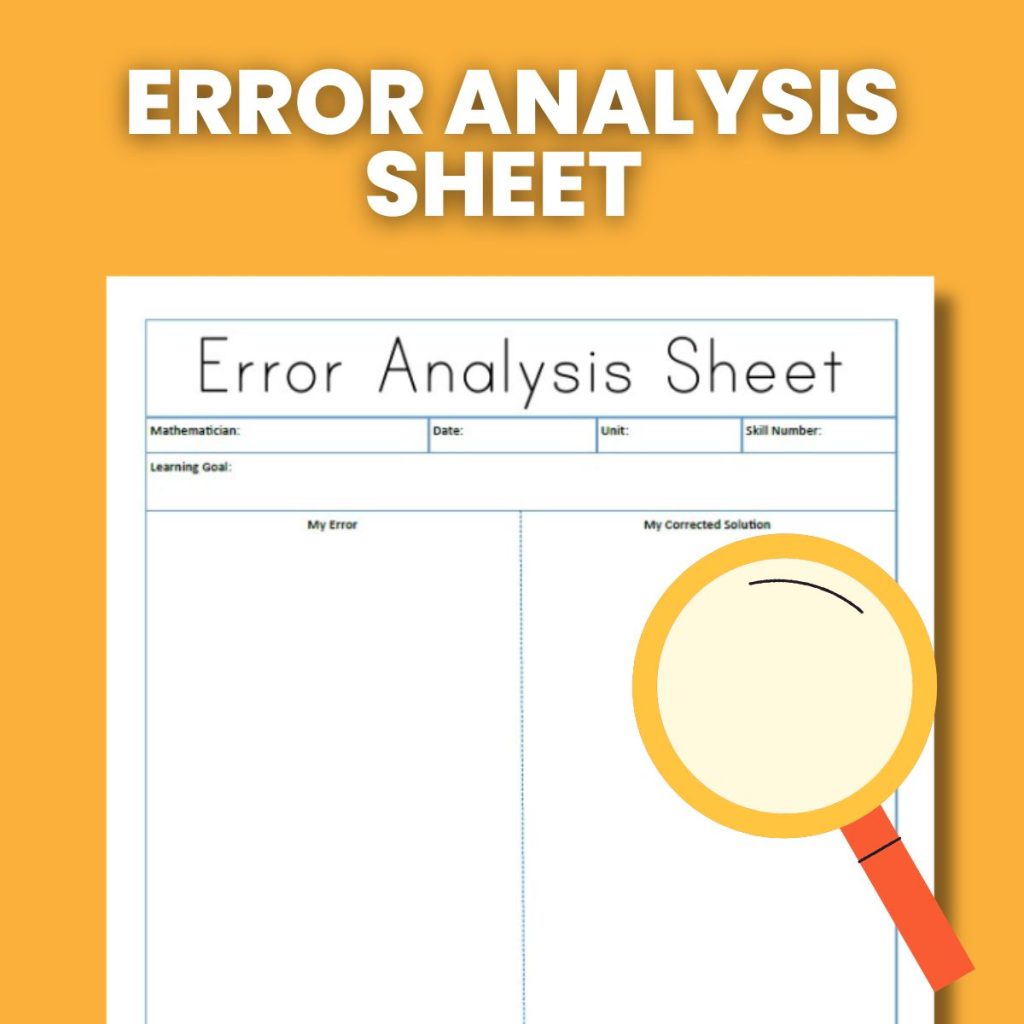
Here’s what I’ve come up with. I’m not opposed to changes or tweaks if you can think of a better way of wording something OR better reflection questions to ask.
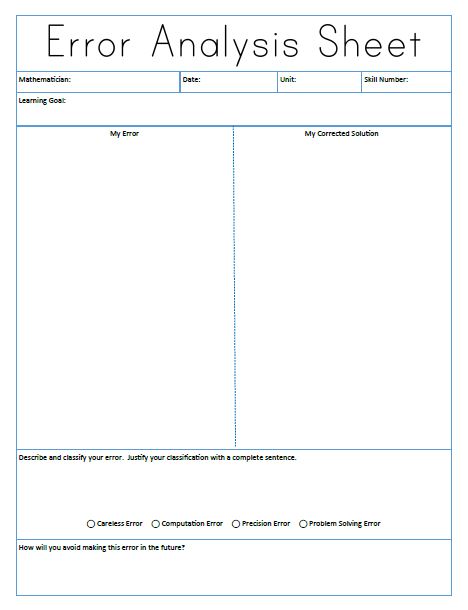
Here are some close-ups of the error analysis sheet so you don’t have to squint. 🙂
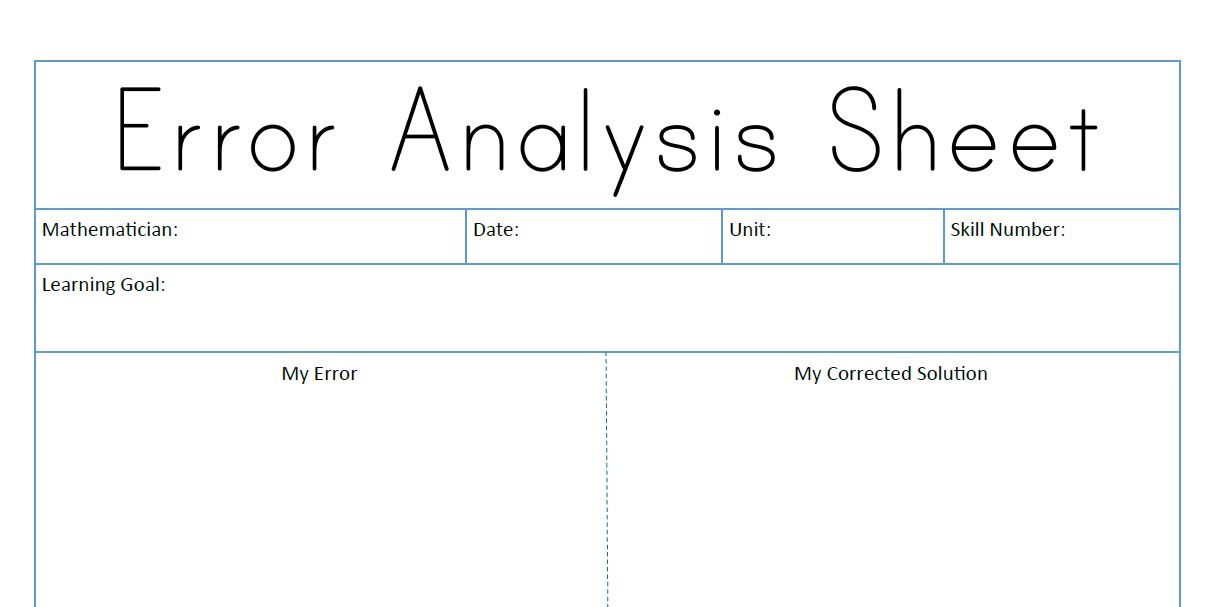
At the top, students have to record their name, the date, the unit number, and the skill number of the quiz they are analyzing their errors on. The, students have to write out what the learning goal was. I think having students write out the learning goal will be beneficial because it will force them to focus on what the quiz was trying to accomplish in the first place. When students turn in their error analysis sheet and get approved to reassess that skill, they will have to write out the learning goal AGAIN on their retake sheet. I want students to know what each and every quiz covers.
There are two columns for students to fill in. For each problem they missed on their quiz, they have to copy down how they worked the problem in the “My Error” column and rework the problem correctly in the “My Corrected Solution” column.
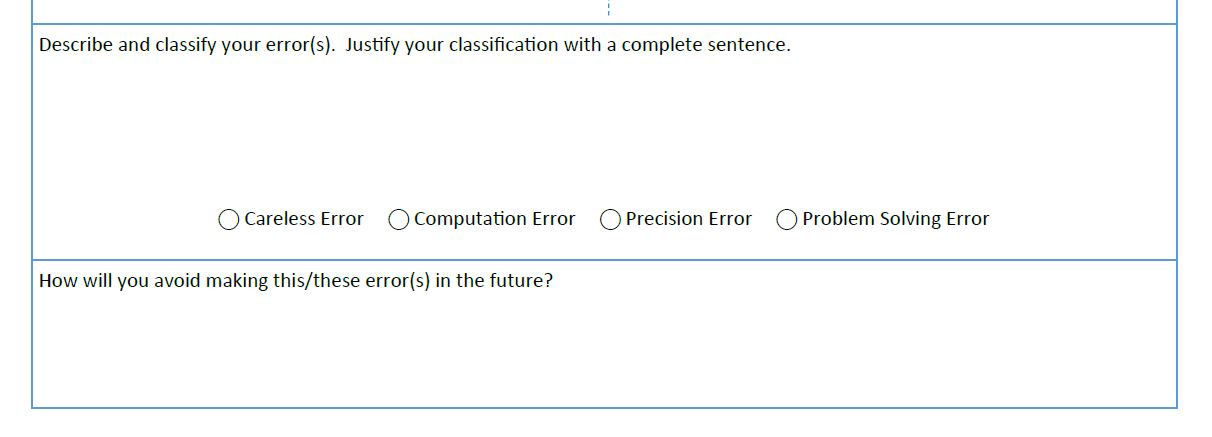
Next, students need to describe in words what their error(s) was/were. I also am requiring them to classify their error(s). I made this Types of Errors poster to hang in my classroom that I blogged about last week.
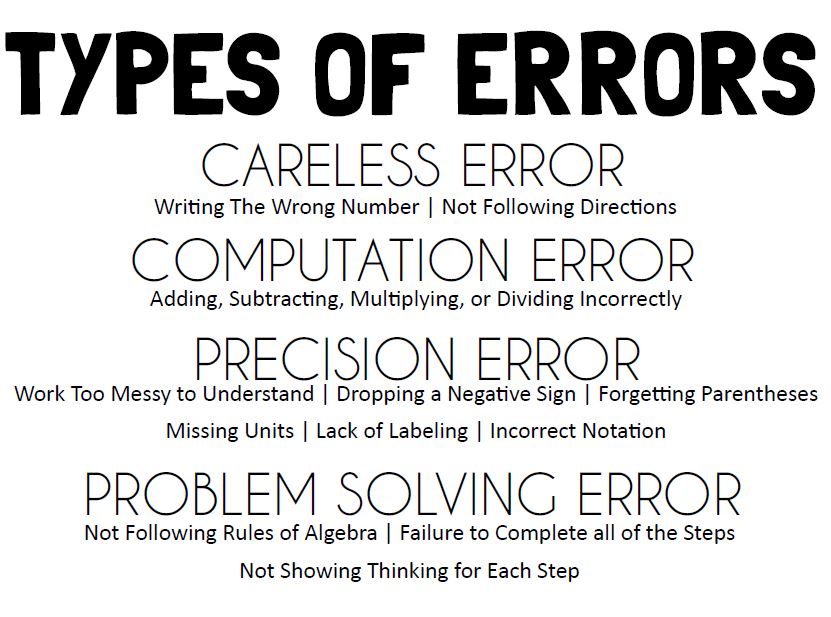
I created little circles for them to color in or put a check mark in to indicate that they made that type of error. I’m doing this because I am going to have my students fill out an end of unit reflection sheet where they have to count up how many of each type of error they made on their quizzes. If a student is making lots of careless errors or precision errors, then I hope that will show them that they need to sloooooooow down. If they are making computation errors, it means that we might need to work on their integer operations or calculator technique.
I also want them to write out a game plan for how they will avoid making errors of this type in the future.
When students fill out these forms, I will be looking for responses like this: “I made a precision error when I forgot to label my axes. I should have labeled the x-axis as time (in seconds) and the y-axis as distance (in feet). In the future, I will look over each graph before I submit my work to make sure I have included a title and labeled each of the axes.”
Because students may be working on these error analysis sheets outside of my classroom, I decided to reformat my poster as an interactive notebook insert. This will print two to a page on letter size paper.
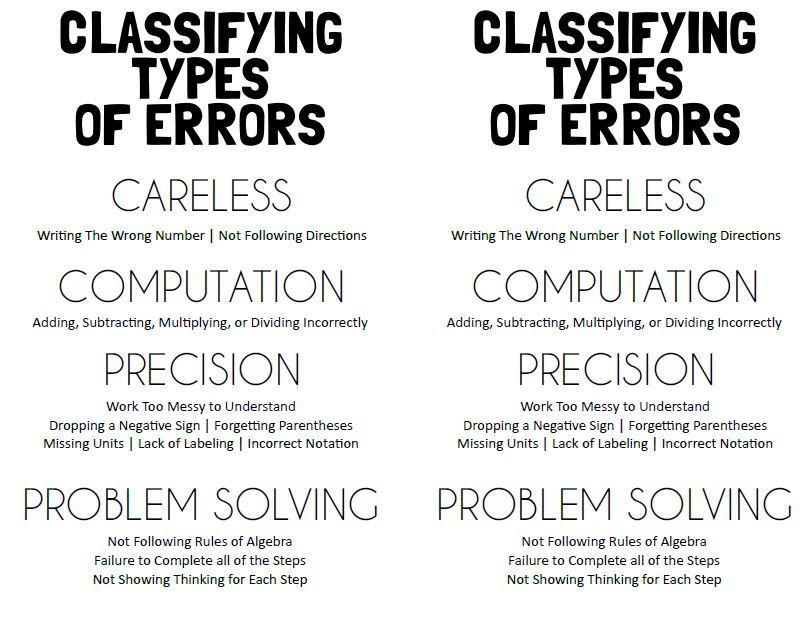

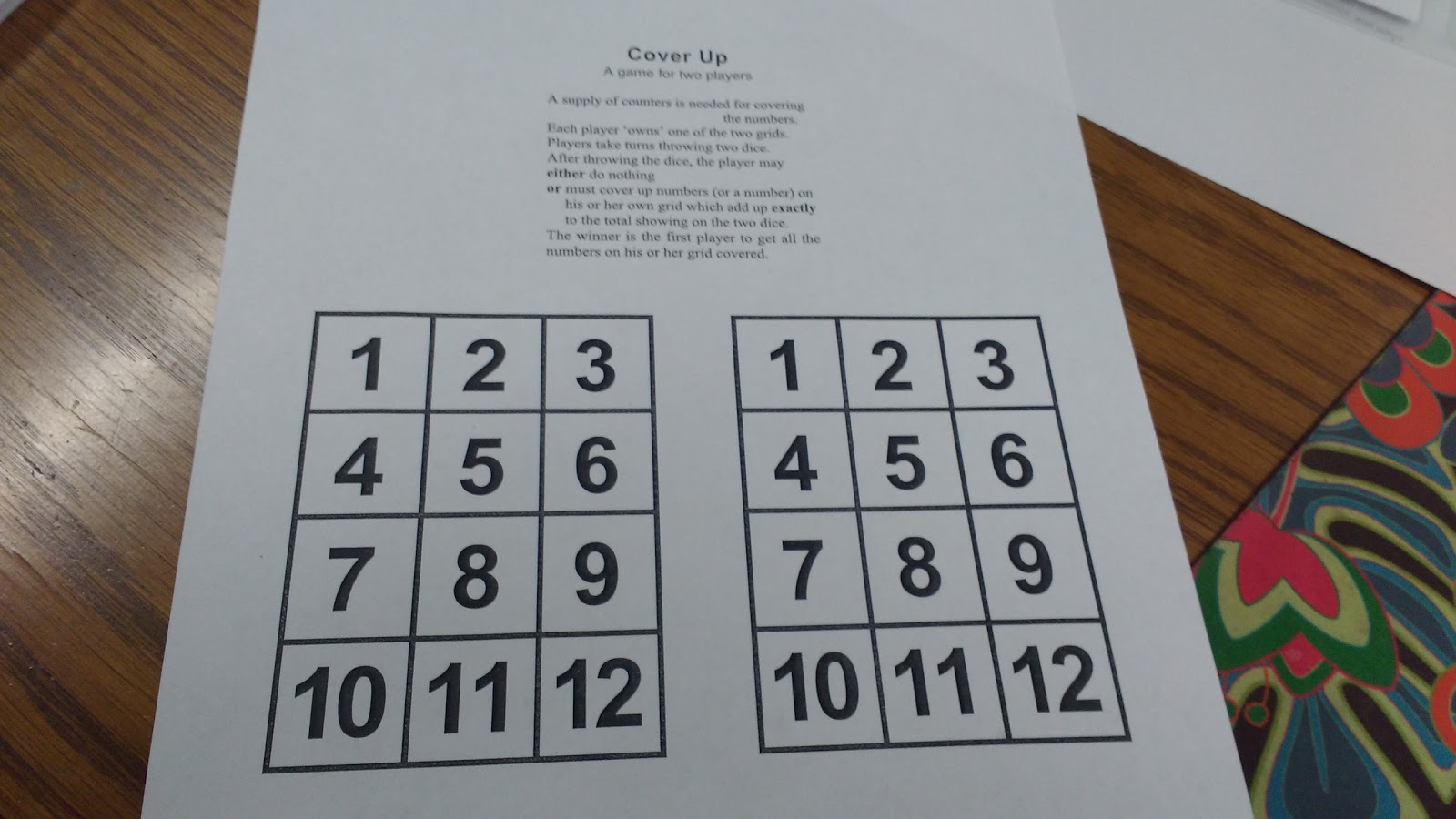
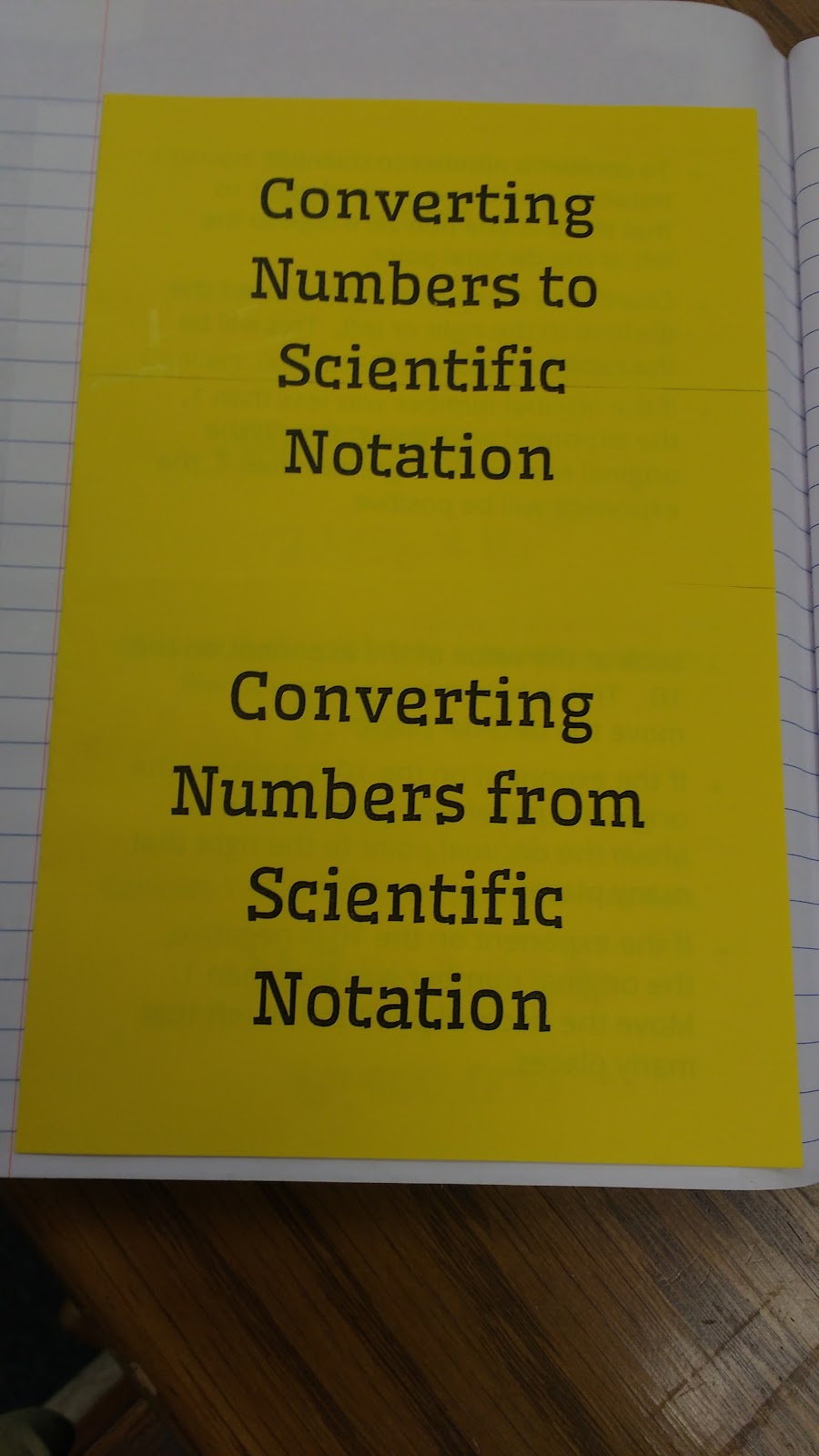
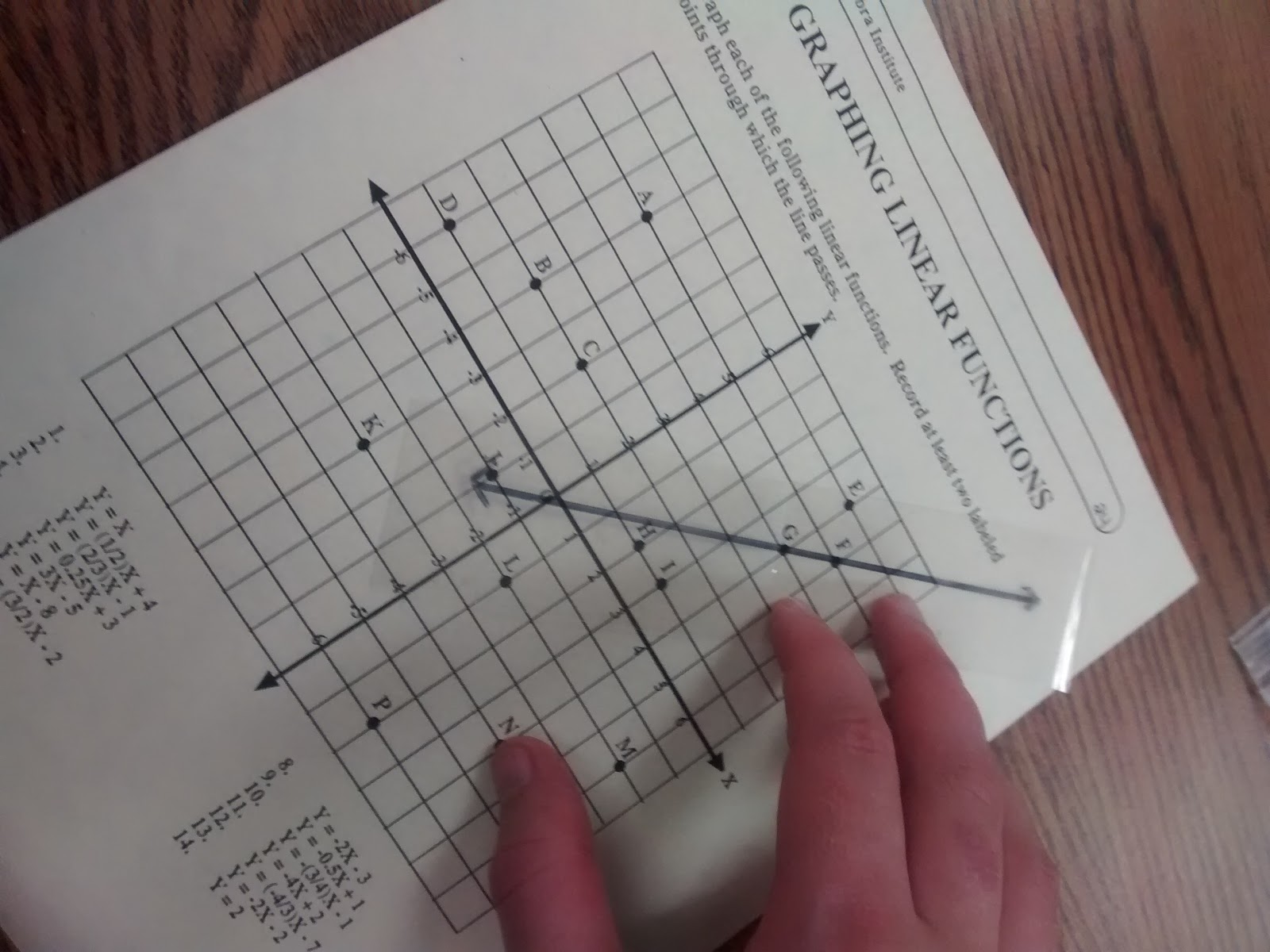

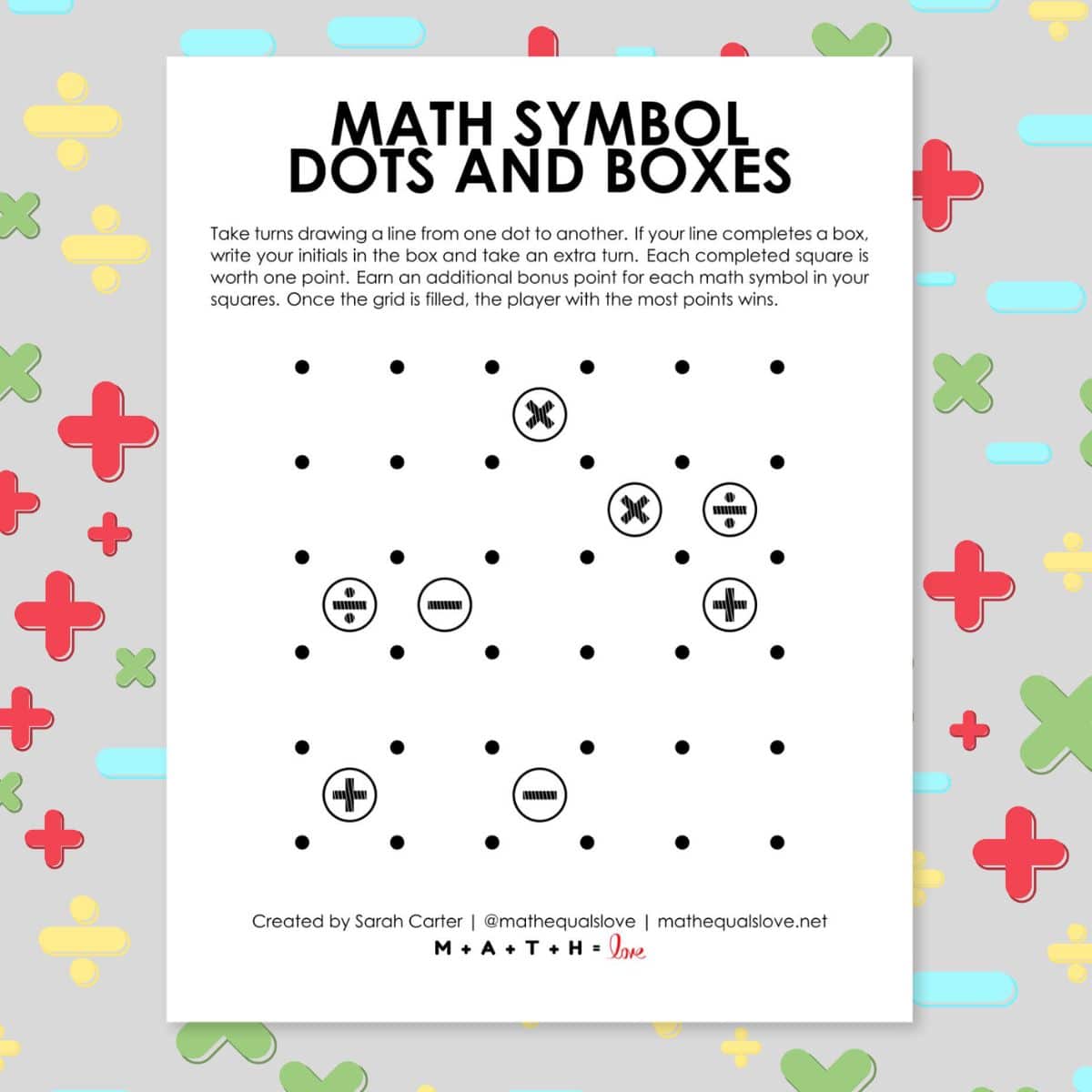

Hi Sarah, I read your blog often! Congrats on creating a very helpful place to visit.
A thought about your error analysis sheet– having them copy their error may reinforce the mistake. You might want to ask them to copy the question instead, describe/name the type of error, and then go ahead and do the problem correctly. I usually have the kids staple their quiz/test to the error analysis, so I can verify the type of mistake if I needed.
I like this idea.
Hi Sarah,
I just downloaded your math symbols posters (which will be helpful for my Vietnamese students here in Vietnam). I also like this error analysis sheet, again making students accountable for their learning! So often, I forget to have students actually look at and explain their mistakes, especially on tests. This will be helpful documentation for parents as well as teachers. I can't wait to share with my math colleagues tomorrow (during my spare time; students start tomorrow, and I have a new colleague to train/mentor)
LOVE everything you post!
Susan (teaching in Vietnam, year #2)
Hope your second year is going well, Susan!
Thanks for making and sharing this!! I'd planned on making something very similar and this helps.
Are you going to have them attach these sheets to the quiz they're correcting? You might want a spot for them to write which quiz/problem number the correction sheet is for.
The quiz is at the top. Skill number and quiz number are the same. I didn't think about problem number, though…
I agree with Stacey about recopying their error. What happens if they make the same error multiple times? YIKES! I love your "Types of Errors" and have been having students classify their errors on test corrections for years. Honestly, it is the only way I could get them to even look at what they were getting wrong. I'll send you some of my revisions over the years. Maybe it's just me, but sometimes my kids would just write "I had no idea how to do this problem!" as their reason. Do you have that ever? Thanks again!
Deidre, Would you be willing to share those revisions with me as well? I am interested in implementing a test correction procedure with my middle school students.
Thank you,
Sarah Senter
I'm having to work really hard to train my students to write good sentences on their error analysis sheets.
I like this idea! Thanks for sharing!
A thought I just had: I wonder if maybe putting "Conceptual Error" on the sheet would also help classify a bunch of errors?
Very good idea!
Would the examples for Conceptual Error be along the lines of "Failure to understand underlying concept" or would that include failure to follow the rules of algebra? I think I could pick out a conceptual error if I saw one, but I am having difficulty verbalizing the general idea in student friendly terms.